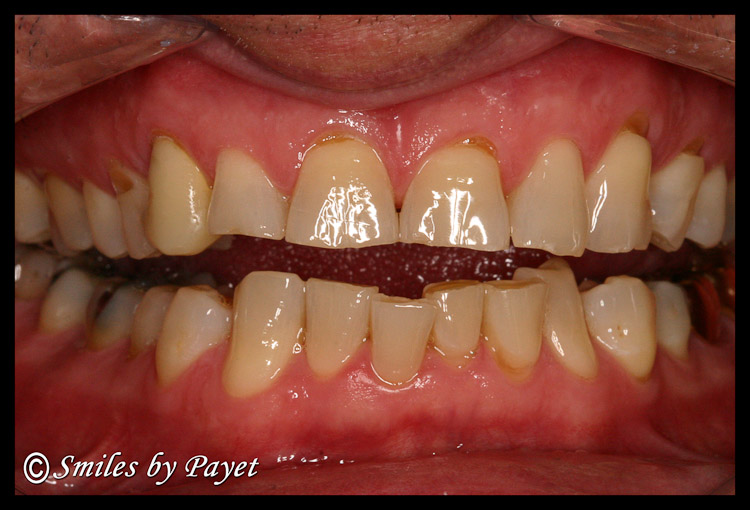Cracked Tooth Crown Or Extraction Method
However, other conditions, such as the ones asterisked below, can cause acute, recurring pain that may need the assistance of a pain management clinic. Common acute dental pain conditions include: Dental pulpitis (“toothache”) is an aching, throbbing pain that usually worsens following food or fluid intake.
Also called a cap, a dental crown is a tooth-shaped outer shell that is cemented onto a single tooth. Crowns are typically used to restore the shape, size and/or.

Abrasion: loss of tooth structure caused by tooth grinding, an improper bite, a hard toothbrush or poor brushing technique: abscess: a localized infection of a tooth. Tooth Pain and Toothache Natural Remedies. Tooth pain happens when the nerve is inflamed. Generally this occurs due to compromised enamel which is allowing material.
It is commonly caused by dental caries or a leaking dental restoration and may also result from a crack in the tooth if the patient experiences a sharp pain when pressure is applied to the tooth cusps. If the pulpal inflammation continues for any length of time and is followed by acute abscess (swelled jaw and painful throbbing), it is likely the cause of pain is an acute infection.
Gingivitis and periodontitis are two common gum diseases. Where gingivitis (bleeding gums caused by plaque buildup) is usually painless, periodontitis can cause an occasional, dull pain. Pericoronitis is infected tissue that causes periodic pain and usually occurs with an impacted or erupting lower third molar. Premature contact (“high bite”) is a recent tooth restoration that is “higher” than the normal occusion, causing a sharp pain that may dull after a period of time.
Exposed cementum or dentine is caused by excessive or incorrect brushing that results in the exposure of the tooth root surface (a thin layer of cementum overlaying dentine) and causes tooth sensitivity to cold fluids or air. Alveolar osteitis (“dry socket”) occurs several days after a tooth extraction when the blood does not clot well and leaves the bone and the nerve endings exposed.
The pain is experienced as a deep ache in the extraction socket.*Post endodontic surgery pain is severe aching pain following endodontic treatment, such as root canal therapy or apicetomy. Most patients’ pain improves over a few weeks; however, a few endodontic patients develop persistent, chronic pain.*Maxillary sinusitis is a continuous aching pain in the maxillary teeth that usually worsens when bending forward. Becker Traffic Assist Z 108 Software Informer here.
Similar symptoms are commonly found in TMD or neuropathic pain. Pain Explained. Toothache may be indicative of many things from minor gum disease to more serious conditions. Therefore the type and nature of the pain are important factors in determining and pinpointing the source of the pain. Most toothaches can usually be categorized under one of these five types of pain: Sharp pain, which usually follows contact of the tooth with hot or cold liquids, is likely caused by a hole in the tooth or filling through which the liquid travels and stimulates the nerve. The pain will stop within a few seconds to a minute during the early stages of decay. The problem is usually fixed with drilling and filling the tooth, but can be relieved in short notice with a temporary filling that stops the stimulation of the nerve. Dull pain usually results from chemicals released from immune system cells in response to bacteria that are attacking living nerve cells.
The chemicals stimulate the nerves, causing an aching pain that is not prompted by a stimulus, such as a cold drink. Pain also worsens in bed at night because blood pressure increases in the tooth when lying down. Treatment usually involves root filling the tooth, which cleans away the dead pulp tissue and bacteria, or tooth extraction for severe decay. Sharp pain only when biting generally happens when there is a small fracture in the enamel of a tooth, which allows the tooth to flex during biting and stimulate the nerve. The pain normally involves only one cusp, usually a molar. Sharp pain when brushing near the gums happens when gums recede with age and wear and expose the root surface of a tooth. The thin layer of cementum that covers the root quickly dissolves, exposing the dental tubules and resulting in pain when brushing.
The problem may be solved by either brushing with Sensodyne toothpaste or having a dentist apply a special fluoride varnish to protect the root surface. Painkillers: Ibuprofen is the best over- the- counter drug for dental pain. However, if the pain is persistent, avoid chronically taking painkillers and seek a dentist to remedy the situation.
Putting aspirin on the gum next to the painful tooth will not remedy the pain and may result in a chemical burn on the gums if left in contact for too long. Also avoid giving aspirin to children, especially those under 1. Reyes syndrome. Back To Top.
